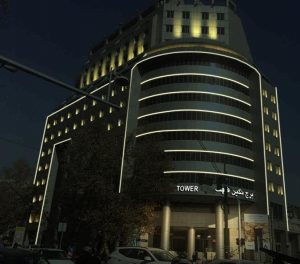Iran customs Law : Import duties and charges of services
Iran customs Law : Chapter 3 – General Topic 1 – Import duties and charges of services
Article 5: Import duties and charges of rendering services shall be collected in the national currency by the customs or persons rendering services respectively, regardless whether the goods are new or used.
Note 1: In calculating the fees that the customs collects for performing customs formalities, the amounts less than one thousand (1000) Riyals shall be considered equivalent to one thousand (1000) Rls.
Note 2: Owner of the goods shall be responsible for paying import duties, charges of rendering services and fines related to release.
Note 3: Instances and the manner of collecting charges of rendering services shall, subject to legal provisions, be specified in bylaw of this law.
Note 3: Instances and the manner of collecting charges of rendering services shall, subject to legal provisions, be specified in bylaw of this law. security and determining of a deadline not more than one year for paying import duties.
Note 1: The increase of import duties shall not include existing goods in customs premises.
Note 2: Incomes referred to in this law shall, subject to article 160, be deposited into an account designated by the General Treasury of the Country and announced by Iran Customs Administration. The customs is obliged to present a receipt in lieu of collecting any fees to the payer.
Article 7: Goods in the customs shall be as a bond for payments of all fees pertaining to such goods and other outright liabilities of the owner of the goods with regard to the fees the collection of which are the responsibility of the customs in accordance with the law. The customs may not allow delivery or release of the goods before collecting or securing such fees.
Article 8: The customs is allowed to inform Taxation Affairs and Finance Organization of its outright claims against persons arising from the implementation of this law, in order to enable such Organization to collect them under the Direct Taxation Law and its bylaw and subsequent amendments.
Topic 2 – Information technology and communication
Article 9: The customs is obliged to provide possibilities of applying ICT in performance of its functions, subject to e-commerce and Civil Service Management laws.
Note: Ministry of Economic Affairs and Finance shall be obliged to develop electronic customs bylaw within six months of the date of entry into force of this law, in cooperation with the Ministry of Communications and Information Technology and submit it to Council of Ministers for approval.
Topic 3 – security
Article 10: With the exception of the charges of rendering services which is immediately collected, the amount of obtained security in order to collect import duties for permissible goods shall be equal to pertaining import duties and in respect of other goods it shall be equal to related import duties plus one-half to three times the value of goods which is determined by the customs as the case may be.
Topic 4 – Customs formalities and controls
Article 11: In order to ensure compliance with Customs Law, all goods entered into or exited from customs territory shall be subject to customs controls and formalities by using practices such as risk management, regular and random checks, deployment of modern equipment and practices of checks, audit-bases procedures and in exceptional cases escorting or surveillance.
Article 12: In order to facilitate and expedite the customs formalities at entry and exit points, representatives of ministries and agencies responsible for other controls shall be obliged to take measures under the customs control. Other controls, such as medical, veterinary, plants, technical and quality standards checkss shall be organized in coordination and under control of the customs. In order to facilitate international trade, some of these controls may, with prior coordination, be entrusted to the customs or take place at another location at the discretion of the customs. Ministries and agencies responsible for these controls shall provide necessary facilities to carry out their functions faster.
Topic 5 – Requirements of harmonized system
Article 13: Ministry of Economic Affairs and Finance shall be obliged to propose the amendments of harmonized commodity description
and coding system, its explanatory notes and subsequent amendments in the framework of a bylaw, to Council of Ministers for approval and publish such amendments in highly circulated newspapers and exclusive website of the customs.
Note: In case such amendments affect the rates of import duties, goods in customs and goods for which letter of credit or bill of lading have been issued before issuing related notification, shall be subject to lesser rates. The period for arrival of the goods referred to in the bill of lading shall be determined in bylaw of this law.


